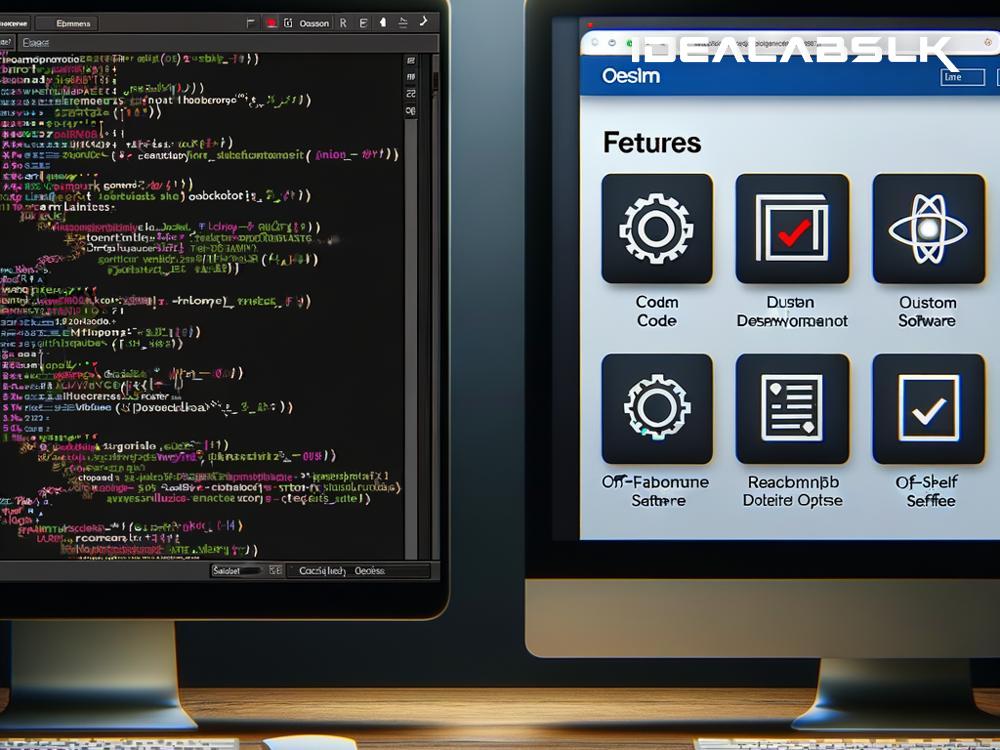Custom Software vs Off-the-Shelf Solutions: A Simple Guide
In today's fast-paced world, using technology to solve problems and enhance efficiency is not just smart; it's essential. Whether you're running a small local shop or a global enterprise, you've likely faced the decision of choosing between custom software and off-the-shelf solutions. Both paths offer distinct advantages and challenges. Let's break down what each option entails, in simple English, to help you make an informed decision.
Off-the-Shelf Solutions: The Convenient Choice
Imagine walking into a store and buying a jacket right off the rack. It's quick, you can use it right away, and it serves its purpose. This is similar to off-the-shelf software. These are products developed to meet the common needs of a broad audience. Think Microsoft Office or Adobe Photoshop.
Pros:
- Cost-Effective & Quick to Implement: Since the solution is already built, you pay the license fee, and voila, you're ready to go. There's little to no wait time for development.
- Tried and Tested: These products are used by millions, ensuring they're relatively bug-free and reliable.
- Updates & Support: Regular updates and customer support are typically included, providing a safety net if things go south.
Cons:
- One Size Does Not Fit All: The jacket off the rack might not fit perfectly. Similarly, these solutions may not cater to your specific needs or integrate seamlessly with your existing systems.
- Ongoing Costs: Subscription fees can add up, and there may be additional costs for customization or extra features.
- Less Flexibility: You'll likely have to adapt your workflow to the software, rather than the other way around.
Custom Software: Tailored to Fit
Now, imagine having a tailor make a jacket that fits you perfectly, adorned with your choice of buttons and fabric. Custom software is built from scratch to address the unique challenges and requirements of your business.
Pros:
- Personalized Solution: Every feature is designed with your needs in mind, ensuring a perfect fit for your business processes and goals.
- Flexibility & Scalability: As your business grows or evolves, your software can be adjusted and scaled accordingly. This flexibility is a significant advantage.
- Competitive Edge: Custom software can provide unique functionalities that set you apart from competitors who rely on generic solutions.
Cons:
- Higher Initial Costs: Customization comes with a price. The cost of development can be steep, especially for complex solutions.
- Time to Launch: Building software from scratch takes time. Depending on the project's complexity, it can be months or even years before it's ready.
- Maintenance Responsibility: Unlike off-the-shelf solutions, where the vendor handles updates and fixes, with custom software, it's up to you (or your IT partner) to maintain and update the software.
Which Should You Choose?
The decision boils down to your business needs, budget, and time frame. Here are some considerations to guide you:
- Budget Constraints: If you're tight on budget and need a solution quickly, off-the-shelf might be the way to go. However, remember to consider long-term costs.
- Unique Business Processes: If your business operations are unique or you're in a niche industry, custom software can offer significant advantages in terms of efficiency and competitive edge.
- Scalability: For rapidly growing businesses, the long-term scalability and flexibility of custom software might outweigh the initial investment.
- Time: If you need something up and running immediately, off-the-shelf software is undoubtedly faster. But if you can afford to wait, custom software will deliver a solution that closely aligns with your business objectives.
Conclusion
Choosing between custom software and off-the-shelf solutions is a significant decision that can impact your business's efficiency, growth, and competitiveness. Off-the-shelf solutions offer a fast, cost-effective, and low-risk option but might lack the customization and scalability your business requires. Custom software, while requiring a higher initial investment in terms of time and money, can provide tailor-made solutions that grow with your business and offer a unique competitive edge.
Ultimately, the best choice depends on your specific needs, goals, and resources. Carefully evaluating these factors will help you make the right decision for your business, ensuring that your technology investment truly pays off.

